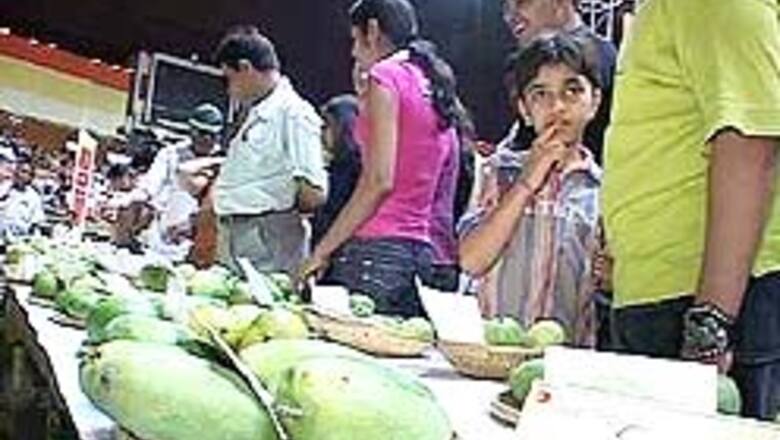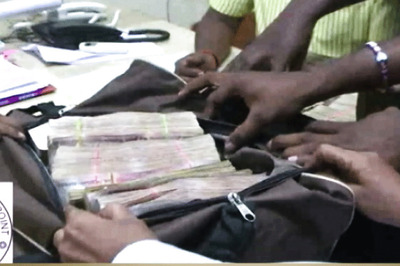
views
New York: The first batch of 150 boxes of choicest Alphonso and Kesari mangoes in 18 years arrived in the city from India to the delight of Indians who had been lusting for luscious fruit for years.
"But they would have to wait for a few more days before they can buy them in the market as the fruit needs to be ripened before being released for sale," said Bhaskar Savani who is distributor and was personally present at the airport when the Air-India flight bringing the cargo landed late last night.
The formal launch of the mangoes will be done in Washington DC on May 1, he said.
Mangoes from Mexico and other central American countries is available in the United States but Indians often complain that they do not taste like the ones India produces. Nor do the Americans have the number of varieties available back home.
Savani said the distributors expect Langra, Chausa, Mallika and Dussheri to follow to give consumers a choice of varieties.
The distributors are in negotiations with Costco chian, which sells merchandise in bulk, for distributing the mangoes and some fast food chains have shown interest in retailing mango shakes.
The US had stopped import of mangoes from India 18 years ago as it felt Indian farmers were using too much pesticide. It has taken sustained negotiations over several years to get the fruit back into the US market.
The US Department of Agriculture has imposed the condition that the mangoes would be irradiated to ensure that that no exotic plant diseases are introduced in the country. However, irridatation also increases the shelf life of the fruit.
The distributors say that they expect a huge and ever increasing demand for the Indian mangoes with the rising Indian population here and locals developing taste for Indian varieties.
India is the largest producer of mangoes in the world, accounting for more than 50 per cent of the total output. It has some 1,000 varieties.



















Comments
0 comment